fmedia is a lightweight audio player, recorder and converter
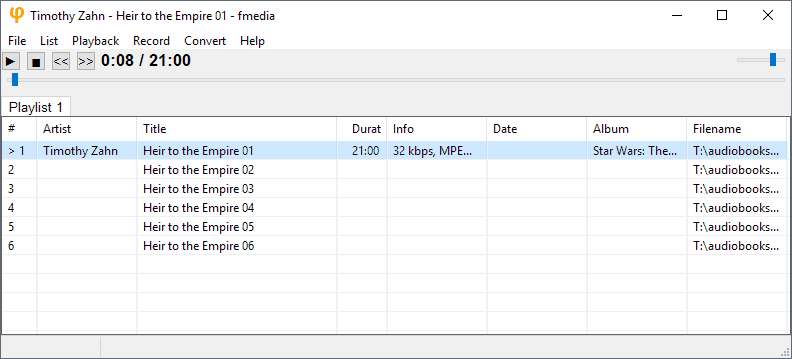
The cross-platform program fmedia (fast media player) is an audio file player, recorder and converter. All modern computer operating systems come with at least one program or app to playback media files. The programs may not always be the most suitable programs as they are usually more bare-bones than third-party options.
Windows users may use Windows Media Player, Groove or the built-in sound recorder on Windows 10, or third-party applications such as AIMP, or VLC Media Player.
fmedia

Fmedia is a cross-platform audio player, converter and recorder that is available for Windows (starting with Windows XP), Mac OS X, GNU/Linux and FreeBSD. One focus of the application is playback on low performance devices and the developer promises smooth playback and recordings even "if devices are very slow".
Start the graphical user interface version of the application after download and extraction of the archive on a supported computer system. The program is fully portable on Windows which means that you can place its files on a USB Flash Drive or media to load it on any compatible device. If you put audio files on the drive or media as well you got a fully functioning offline player.
The interface is bare bones but that is not necessarily negative depending on how you look at it. While it may not look as pretty as some other players, keeping it minimal interface-wise ensures that the program stays below the 10 or so Megabytes mark on a 64-bit version of Windows.
Drag and drop supported media files in the interface to play or process them. The application supports playlists which it displays in tabs in the interface. Use List > New Tab or the shortcut Ctrl-N to create a new playlist.
Fmedia supports a wide range of formats including mp3, ogg, flac, mp4 or aac, and also video or container formats such as avi, mkv, or mka.
Double-click on a file to play it or use the play and stop buttons to do so instead. The player part of the application supports a wide range of shortcuts such as S to stop playback, N to jump to the next file or UP to increase the volume.
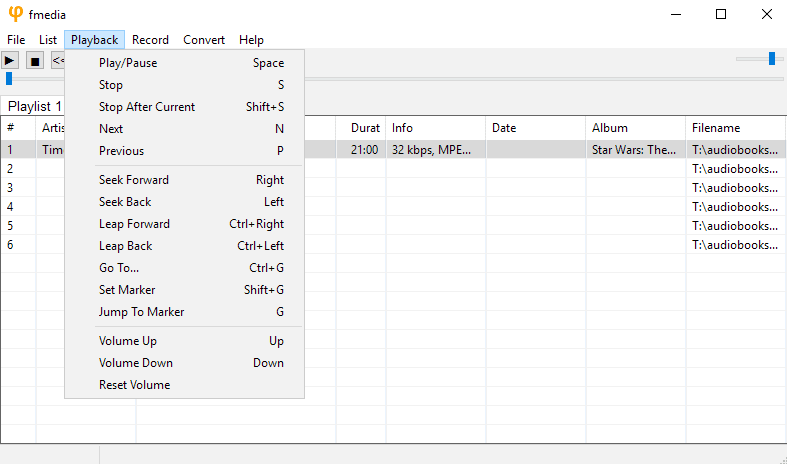
Playlists need to be saved so that they may be loaded again in the future.
Fmedia supports two additional features of interest. You may use the program to convert media files and to record audio.
Converting works pretty much as you'd expect it to. Add supported files to the program and select Convert > Convert afterward. You may also use Ctrl-T to run the convert command right away if you prefer to do so using the keyboard.
All input media can be converted to the audio formats mp3, ogg, opus, m4a, flac, or wav. The application displays a new window when you select convert that looks complicated on first glance.
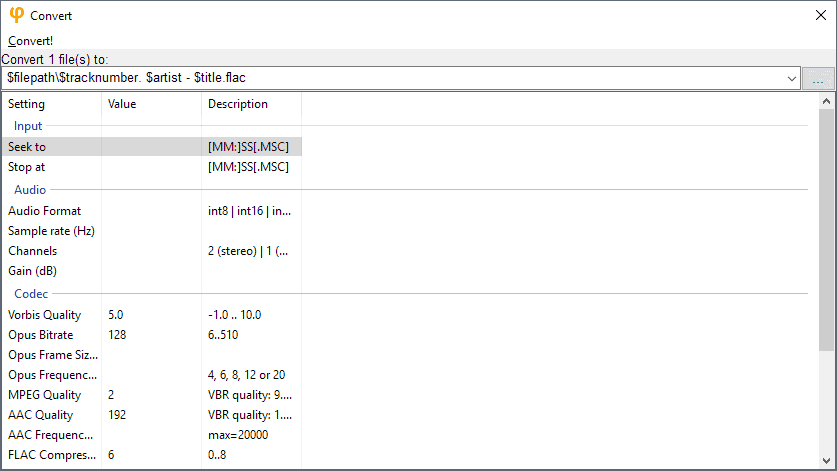
The impression changes when you realize that you may only change the file path, file name, and file type at the top. It is necessary that you change the output format manually as there is no option to pick a supported format from a list.
The recording interface looks similar to the one used to convert audio files. It displays the same information and limits user input to changing the path, file name and output format.
Just hit start and stop to start or stop audio recordings; it cannot get simpler than that.
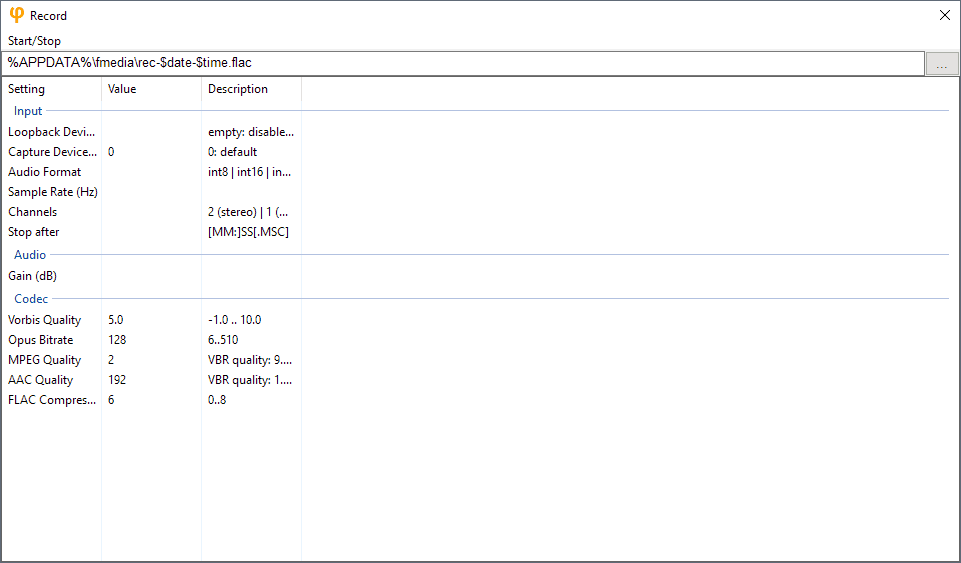
The graphical user interface offers no configuration options that you can set from within. You may open Help to open text configuration files and edit those but it requires deeper knowledge of that.
While you may use the GUI for playback, you may start fmedia from the command prompt as well. Basic examples are fmedia https://stream:80/, fmedia ./mp3 or fmedia ./file.ogg /*.mp3.
Additional commands to convert or record media are listed on the official homepage of the project.
Closing Words and verdict
Fmedia is a light media player that supports audio playing, recording, and converting. The program is not the prettiest of applications and somewhat difficult to customize but it performs well even with the default configuration and should run fine on many low performance devices.
Now You: Which media player do you use?













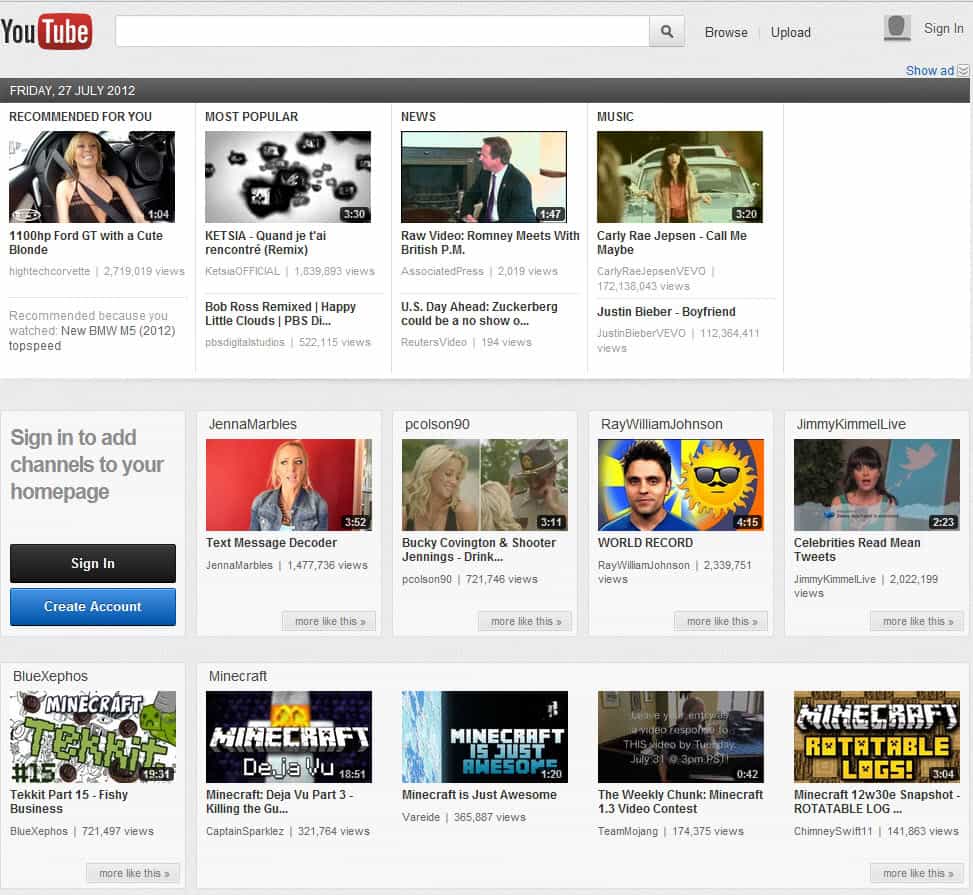

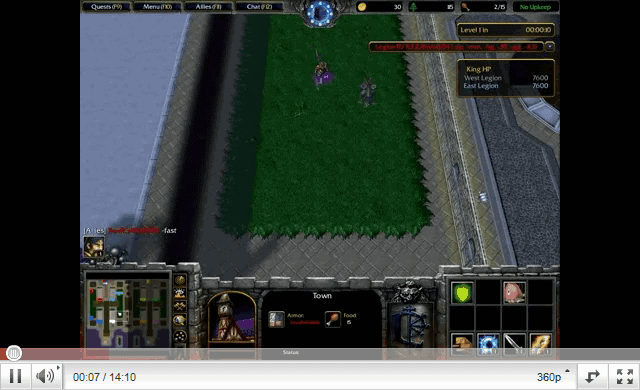
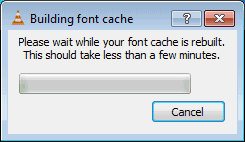











Look like a new to me.. but I’m curious to this kind of converter perhaps this is contain of most useful tricks.
Good find. The command line version of this program is especially really handy in conjunction with automated tasks, such as starting a recording with AutoHotkey or calling Fmedia with any other program. There aren’t many alternatives out there that are either up-to-date, system friendly in terms of resource usage or support a handful of commands for calling a recorder program via command line.
MediaPlayerCalssic play audio and video files and does it well, with a tiny footprint.
Pity it’s no longer being maintained.
https://forum.doom9.org/showthread.php?t=175209
MPC-HC is maintained though
https://forum.doom9.org/showthread.php?t=175209
https://github.com/clsid2/mpc-hc/
I use VLC, working great, libre software, no ads, no spyware…
I use AIMP primarily because I can customise it to my requirements. Enough said….
This programme is new to me. The description and screenshots made me curious. However, it appears that there is no Linux build with a GUI. I ran ‘fmedia –gui’ and got:
‘…/fmedia/mod/gui.so: cannot open shared object file: No such file or directory’
And indeed, there is no file ‘gui.so’ in the ‘…/fmedia/mod/ folder’.
Perhaps the developers assume that all Linux users are old-fashioned geeks who want CLI software only. It’s a wrong assumption though.
Programme deleted.
Believe it or not, I still use Winamp as my main audio player. I have removed most of the things I don’t want including the music library and modern skin support. The default skin is fine for my purposed … an unobtrusive but functional player on screen.
Doesn’t look bad, but is it any lighter than foobar2000? Is it in any way more useful? What’s the point of being ligther than foobar2000? I remember when I played WoW on my 2005 computer, when I used Winamp, WoW would stutter so I found foobar2000 and used it, but nowadays, lightweight isn’t really a problem with audio players.
It would be beneficial if they made other stuff, like Chrome, Firefox, Discord and such to have “lite” version, but audio players…?
Perhaps “they” could also make lite viruses and malware too :-P